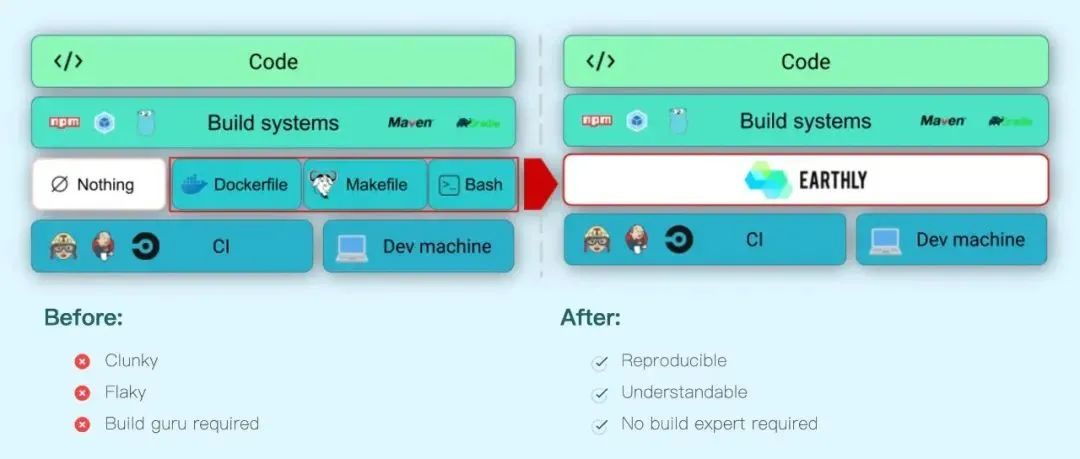APISIX插件开发之精细化限速插件

需求背景
APISIX[1]当前版本(2.10.1)请求频率限制相关插件有 limit-count、limit-req、limit-conn 三种。都只能支持给固定的 key 来设置一个统一的限速,比如在 service 或 route 如下添加 limit-count 插件:
"limit-count": {
"count": 10,
"key": "consumer_name",
"policy": "local",
"rejected_code": 503,
"time_window": 1
}
那所有 consumer 都是一样的限速阈值,每秒 10 次。
再比如,在 Consumer 侧给指定的 Consumer 如下添加 limit-count 插件:
"limit-count": {
"count": 10,
"key": "service_id",
"policy": "local",
"rejected_code": 503,
"time_window": 1
}
那这个 Consumer 访问任意 service 都是一样的限速阈值。
在实际业务场景中,这个限速还太笼统,达不到业务要求。比如,业务 A 要求给 ConsumerA 限制 1 分钟能访问 100 次,给 ConsumerB 1 分钟限制能访问 1000 次,这个限速可以在 Consumer 侧给 A、B 分别设置限速,但是当 ConsumerA 和 ConsumerB 还需要访问业务 B,且业务 B 又有不同限速需求的时候,当前插件就玩不转了,除非客户端针对每个业务都要生成不同的 Consumer,那这个就太复杂了。
为了满足这个需求,我们一开始也APISIX[2]官方做了探讨,不过官方可能觉的不太通用,没后话了,感兴趣的可以看下issue[3]。
解决方案
最后,我们自己在 limit-count 插件基础上进行改造,重新设计一个限速机制,能够针对不同的服务给不同的 Consumer 设置差异化的访问限速,满足生产环境更精细化的限速需求。
方案原理:将 limit-count 配置插入一个 table,在 table 里面支持定义更复杂的 key 和阈值,具体插件的配置 schema 如下:
{
"scope": "route_id", # 标明插件添加位置,支持 route_id 和 service_id
"default_count": 1000, # 设置默认的限速阈值
"default_time_window": 60, # 设置默认的时间窗口
"key": "consumer_name", # 设置要限速的客户端对象,支持 ["remote_addr", "server_addr", "http_x_real_ip", "http_x_forwarded_for", "consumer_name"]
"map": { # 给每个限速对象分别设置不同的限速阈值和时间窗口
"ConsumerA": {
"count": 300,
"time_window": 60
},
"ConsumerB": {
"count": 300,
"time_window": 60
},
"ConsumerC": {
"count": 300,
"time_window": 60
}
},
"policy": "local",
"rejected_code": 429 # 官方的限速插件超过限制访问返回的503,并不友好,这里改成更加直白的429 Too Many Requests
}
插件代码
--
-- Licensed to the Apache Software Foundation (ASF) under one or more
-- contributor license agreements. See the NOTICE file distributed with
-- this work for additional information regarding copyright ownership.
-- The ASF licenses this file to You under the Apache License, Version 2.0
-- (the "License"); you may not use this file except in compliance with
-- the License. You may obtain a copy of the License at
--
-- http://www.apache.org/licenses/LICENSE-2.0
--
-- Unless required by applicable law or agreed to in writing, software
-- distributed under the License is distributed on an "AS IS" BASIS,
-- WITHOUT WARRANTIES OR CONDITIONS OF ANY KIND, either express or implied.
-- See the License for the specific language governing permissions and
-- limitations under the License.
--
local limit_local_new = require("resty.limit.count").new
local core = require("apisix.core")
local plugin_name = "limit-count-by-client"
local limit_redis_cluster_new
local limit_redis_new
do
local redis_src = "apisix.plugins.limit-count.limit-count-redis"
limit_redis_new = require(redis_src).new
local cluster_src = "apisix.plugins.limit-count.limit-count-redis-cluster"
limit_redis_cluster_new = require(cluster_src).new
end
local lrucache = core.lrucache.new({
type = 'plugin', serial_creating = true,
})
local schema = {
type = "object",
properties = {
key = {
type = "string",
enum = {"remote_addr", "server_addr", "http_x_real_ip",
"http_x_forwarded_for", "consumer_name"},
default = "remote_addr",
},
default_count = {type = "integer", exclusiveMinimum = 0},
default_time_window = {type = "integer", exclusiveMinimum = 0},
scope = {
type = "string",
enum = {"route_id", "service_id"},
default = "route_id",
},
map = {
type = "object",
items = {
type = "object",
count = {type = "integer", exclusiveMinimum = 0},
time_window = {type = "integer", exclusiveMinimum = 0},
}
},
rejected_code = {
type = "integer", minimum = 200, maximum = 599, default = 429
},
policy = {
type = "string",
enum = {"local", "redis", "redis-cluster"},
default = "local",
}
},
dependencies = {
policy = {
oneOf = {
{
properties = {
policy = {
enum = {"local"},
},
},
},
{
properties = {
policy = {
enum = {"redis"},
},
redis_host = {
type = "string", minLength = 2
},
redis_port = {
type = "integer", minimum = 1, default = 6379,
},
redis_password = {
type = "string", minLength = 0,
},
redis_database = {
type = "integer", minimum = 0, default = 0,
},
redis_timeout = {
type = "integer", minimum = 1, default = 1000,
},
},
required = {"redis_host"},
},
{
properties = {
policy = {
enum = {"redis-cluster"},
},
redis_cluster_nodes = {
type = "array",
minItems = 2,
items = {
type = "string", minLength = 2, maxLength = 100
},
},
redis_password = {
type = "string", minLength = 0,
},
redis_timeout = {
type = "integer", minimum = 1, default = 1000,
},
redis_cluster_name = {
type = "string",
},
},
required = {"redis_cluster_nodes", "redis_cluster_name"},
}
}
}
}
}
local _M = {
version = 0.4,
priority = 1002,
name = plugin_name,
schema = schema,
}
function _M.check_schema(conf)
local ok, err = core.schema.check(schema, conf)
if not ok then
return false, err
end
return true
end
local function create_limit_obj(conf, ctx)
core.log.info("create new limit-count plugin instance")
local req_key = ctx.var[conf.key]
local item_count = 0
local item_time_window = 0
if conf.map[req_key] ~= nil then
item_count = conf.map[req_key].count
item_time_window = conf.map[req_key].time_window
else
item_count = conf.default_count
item_time_window = conf.default_time_window
end
if not conf.policy or conf.policy == "local" then
return limit_local_new("plugin-" .. plugin_name, item_count,
item_time_window)
end
if conf.policy == "redis" then
return limit_redis_new("plugin-" .. plugin_name,
item_count, item_time_window, conf)
end
if conf.policy == "redis-cluster" then
return limit_redis_cluster_new("plugin-" .. plugin_name, item_count,
item_time_window, conf)
end
return nil
end
function _M.access(conf, ctx)
core.log.info("ver: ", ctx.conf_version)
local lim, err = core.lrucache.plugin_ctx(lrucache, ctx, conf.policy, create_limit_obj, conf, ctx)
if not lim then
core.log.error("failed to fetch limit.count object: ", err)
return 500
end
local req_key = ctx.var[conf.key]
local limit_key = req_key .. conf.scope
local key = (limit_key or "") .. ctx.conf_type .. ctx.conf_version
core.log.info("limit key: ", key)
local delay, remaining = lim:incoming(key, true)
if not delay then
local err = remaining
if err == "rejected" then
return conf.rejected_code
end
core.log.error("failed to limit req: ", err)
return 500, {error_msg = "failed to limit count: " .. err}
end
local item_count = 0
local item_time_window = 0
if conf.map[req_key] ~= nil then
item_count = conf.map[req_key].count
else
item_count = conf.default_count
end
core.response.set_header("X-RateLimit-Limit", item_count,
"X-RateLimit-Remaining", remaining)
end
return _M
启用方法
将插件代码保存为 limit-count-by-client,拷贝到apisix/plugins,然后在 config.yaml 插件位置启用,如下,包括 2 个配置:
# 前面略...
nginx_config:
http:
lua_shared_dicts:
plugin-limit-count-by-client: 10m # 插件的policy使用local模式的时候,需要用到共享内存
# 内容略...
plugins:
- # 内容略..
- limit-count-by-client
## 后面内容略...
具体配置,这里贴一个结合 HMAC 认证插件,实现对具体用户进行限频的路由配置,仅供参考:
{
"uris": [
"/hello"
],
"plugins": {
"hmac-auth": {
"disable": false
},
"limit-count-by-client": {
"default_count": 1000,
"default_time_window": 60,
"key": "consumer_name",
"map": {
"consumer_A": {
"count": 1000,
"time_window": 60
},
"consumer_B": {
"count": 500,
"time_window": 60
}
},
"policy": "local",
"rejected_code": 429,
"scope": "route_id"
}
},
"service_id": "service_foo",
"status": 1
}
至于需要在官方 dashboard 启用,则需要更新一下 dashboard 的 schema.json,这里就不细说了。
注意事项
这个插件改造后只能加到 service 或 router,而不能加到 consumer 位置,所以取名叫 limit-count-by-client。
引用链接
APISIX: https://zhang.ge/tag/apisix/
[2]APISIX: https://zhang.ge/tag/apisix/
[3]issue: https://zhang.ge/goto/aHR0cHM6Ly9naXRodWIuY29tL2FwYWNoZS9hcGlzaXgvaXNzdWVzLzQ3NjA=
原文链接:https://zhang.ge/5158.html


你可能还喜欢
点击下方图片即可阅读

云原生是一种信仰 🤘
关注公众号
后台回复◉k8s◉获取史上最方便快捷的 Kubernetes 高可用部署工具,只需一条命令,连 ssh 都不需要!


点击 "阅读原文" 获取更好的阅读体验!
发现朋友圈变“安静”了吗?


